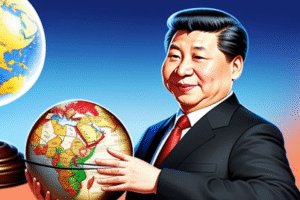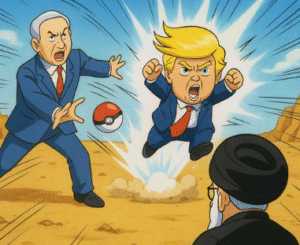$SPY $TLT #GazaPeace #TrumpNews #MiddleEast #PeaceProcess #InternationalRelations #Geopolitics #HostageCrisis #IsraelPalestine #Diplomacy #GlobalPolitics #TransitionalGovernment
Will Trump’s Gaza Peace Plan Succeed? Uncover the Surprising Backers!
Trump’s news about his 20-point peace initiative for Gaza has ignited a complex dialogue characterized by divergent endorsements and interpretations across the Arab world. The proposal, which outlines a roadmap for peace, emphasizes a range of immediate actions, including a ceasefire, an Israeli withdrawal to agreed lines, and the release of hostages within 72 hours. Notably, the plan seeks to exclude Hamas while mandating the dismantling of its military infrastructure.
This peace plan aims to establish a transitional Palestinian committee responsible for administering Gaza. An international “Board of Peace,” chaired by Trump himself, would oversee this committee, bringing together influential figures from various backgrounds. While the plan has garnered cautious support from certain officials, the reactions from Arab nations tell a different story, often tinged with skepticism.
Understanding the Plan’s Provisions
The core elements of Trump’s peace plan revolve around the immediate cessation of hostilities. The proposal calls for Israel to retreat to pre-defined boundaries and insists on a large-scale prisoner exchange. While the plan is ambitious, its success hinges on the cooperation of multiple stakeholders, particularly those who are often at odds with the U.S. approach to the region.
One critical aspect of the plan is its exclusion of Hamas, the governing body in Gaza. This exclusion raises questions about the plan’s viability, given that any sustainable peace requires the involvement of all parties. Critics argue that sidelining Hamas may undermine the legitimacy of the proposed transitional government and further complicate the peace process.
The Geopolitical Landscape
The geopolitical implications of this peace plan are profound. It reflects a shift in U.S. foreign policy under Trump’s administration, potentially recalibrating relationships in the Middle East. Many analysts draw parallels to historical peace efforts, noting that successful negotiations often require a thorough understanding of regional dynamics and the interests of various factions.
As the plan unfolds, its reception in the Arab world will be crucial. Countries that have historically supported Palestinian aspirations may view this initiative with skepticism, especially if they perceive it as favoring Israeli interests over Palestinian rights. In contrast, some may see it as an opportunity for a fresh approach to an enduring conflict.
Potential Backers and Detractors
Interestingly, the plan has attracted a mix of supporters and critics. Some political leaders express cautious optimism, viewing the plan as a potential breakthrough in a long-stagnant peace process. Others, however, are less enthusiastic, arguing that the exclusion of key players like Hamas could lead to further instability.
Furthermore, the international community’s role cannot be overlooked. With the proposed oversight by an international Board of Peace, the success of this initiative may depend on the willingness of global powers to engage constructively. This could involve mediating discussions and ensuring that all voices are heard in the peace process.
As this situation evolves, the implications for the stock market and global financial stability will also merit close observation. Investors may react to news surrounding the peace plan, particularly if it leads to a significant shift in the geopolitical landscape.
In conclusion, Trump’s Gaza peace plan presents both opportunities and challenges. While it has attracted some cautious support, the path to successful implementation remains fraught with obstacles. Only time will tell if this initiative can pave the way for lasting peace in the region. For more insights into the intersection of global events and financial markets, explore our section on stocks.











Comments are closed.